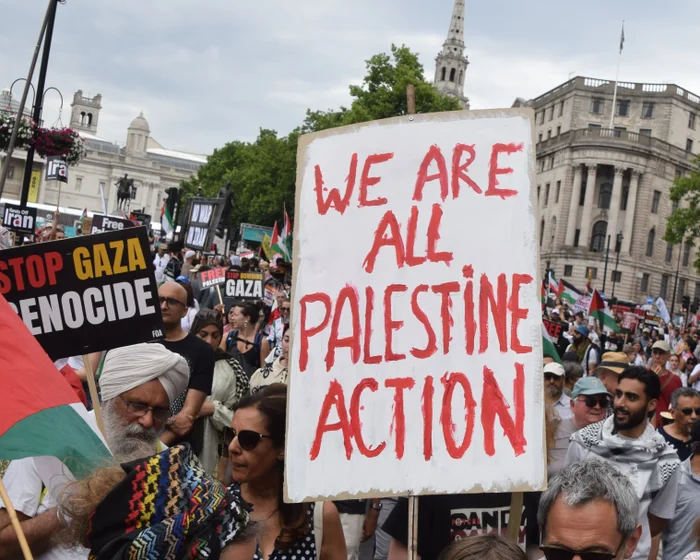Image Source: The Guardian
World – Head of Advocacy at CAGE International, Anas Mustapha, has accused the United Kingdom (UK) government of becoming increasingly authoritarian and draconian in its treatment of pro-Palestinian activism.
His remarks follow the British Home Office’s plan to ban Palestine Action, a direct action group known for disrupting companies linked to the Israeli military.
Mustapha argued that the use of proscription laws against a nonviolent campaign group is a clear sign of state overreach. He described the move as part of a broader trend that weaponises counterterrorism legislation to silence dissent.
“Prescription rules have been in effect in the UK for a very long time,” he said. “What we’ve seen in recent years is that there’s been a shift… Laws are drafted in such a broad and sort of dragnet way. It enables the government to chase and go after anyone whom they feel is a threat or they see as undermining their narrative.”
This week’s announcement followed a protest in which Palestine Action activists broke into an RAF base and disabled two reconnaissance planes allegedly linked to intelligence-gathering operations over Gaza by spray painting them.
The demonstration triggered condemnation from government ministers, but Mustapha defended the action as necessary and principled.
“They are actually involved in stopping acts of criminality, in stopping the UK’s complicity in war crimes and genocide and supporting apartheid.”
Mustapha also highlighted a troubling shift in the government’s legal approach. While activists were previously charged with minor offences, many now face terrorism-related charges, a move he views as a calculated attempt to escalate penalties and deter protest.
He argued that this shift is no accident but the result of sustained lobbying by pro-Israel interest groups. As such, he believes Palestine Action should be recognised, not criminalised, for taking personal risks to uphold international law and oppose genocide.
Moreover, Mustapha stated that CAGE is mobilising its resources to defend the group, describing the planned ban as a politically motivated crackdown aimed at stifling legitimate dissent.
Pro-Palestinian Groups Stand in Solidarity with Palestine Action
Public opposition to the proposed ban has grown, with numerous human rights organisations warning that the government’s approach threatens civil liberties. Mustapha confirmed that CAGE International and dozens of civil society groups are standing firmly behind Palestine Action.
“When it comes to support… There’s been widespread condemnation of this position of the government, some even in mainstream papers. Most of the Palestine organisations have come out in solidarity,” he said.
This collective show of solidarity, Mustapha noted, reflects broader concern across civil society that the proposed ban sets a dangerous precedent. Many fear that if Palestine Action is silenced through the misuse of counterterrorism legislation, other campaign groups could face the same fate.
